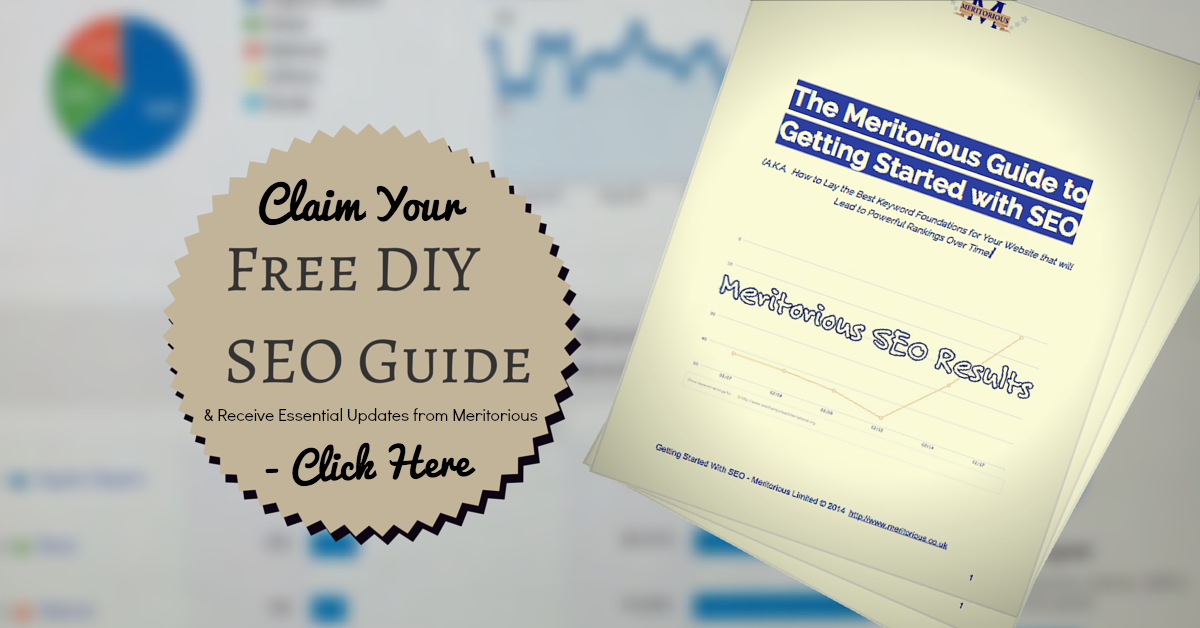How Do I Choose Which Keywords to Target for SEO?
This question is one of the most important and common questions we get asked here at Meritorious.
Search Engine Optimisation is all about making sure your website is set up to help you become prominent for all the right searches. A surprising number of business owners make the mistake of saying they want high rankings but without considering just which keywords are most important to them. What's also important is that your target keywords are searched for frequently.
Now, if you're lucky enough to have an SEO consultant taking care of this process for you, the great news is that they can help advise you on your best target keywords. What they should do is consider your customers, your key services/products and the locations you serve then they'll present you with some suggestions of keywords that best suit your business alongside how many searches these keywords are likely to get you.
At this point you’ll just need to point out whether the keyword does not fit with your business offerings for some reason that the SEO may not know – such as if the focus on a service chosen is perhaps less profitable to you than an alternative keyword in the list, but otherwise you’re most likely good to go with the choices they present to you.
The DIY SEO Process
The only time then that you would need to choose your keywords without help would be if you decide to optimise your own website as many new website owners try to do initially, especially when just starting out with a new business. This can be a false economy though if your keyword choice is far off target or is not properly researched (ie. too difficult to rank highly for, given the assessed level of your competition).
Assuming you do decide to try some DIY SEO, start with the keywords you feel best describe your business industry, services or products and then brainstorm from these using pen and paper or a keyword generating tool such as the Google Adwords Keyword Tool to generate a list.
The next step is to narrow down your list to the 3 -5 most suitable keywords as a starting point, considering both competition levels and number of searches each one generates per month (you’ll need a tool like that above for this last figure).
The competition level shown by tools such as the Google Adwords Keyword Tool gives you a broad indication of how difficult each keyword may be to rank highly for. An SEO consultant however can provide a more in-depth analysis of how difficult your keyword may be to rank for, although with the search engines using ever- changing rules for sorting their results, no ranking can ever be 100% certain and guaranteed.
Localised SEO or More Generic SEO Keywords
Some of the main combinations of keywords that many searchers will hope to find local businesses by online tend to be your business type, products or services plus the city, town or start of postcode that you reside in. For Meritorious, some examples would include ‘web designer west hampstead‘ or perhaps ‘web design london‘ or ‘web design nw6‘.
Depending on the competition, your budget and how localised your services are, you may decide to focus on local search engine optimisation (ie. searches using your town name and postcode plus services/products/industry) as ranking well for these can be more achievable than more generic searches in a shorter stretch of time and can help you gain local customers – great if you want customers to visit you at your office or shop.
Your alternative to local keywords would be more generic, broad keywords such as ‘web design’ in our case. Whilst a keyword like this gets a huge number of searches – ranking highly for it (ie. on the first page or two of Google) is no easy task and can take many years through SEO.
At Meritorious, we advise that our SEO clients target a mixture of localised and more generic keywords unless they would like to opt for local SEO only. For the generic keywords with potentially higher numbers of searches, we work towards attracting high rankings for these over time whilst targeting the most localised keywords in the shorter term. This gives a strong potential to both types of keyword and can help future-proof your SEO strategy if you move locations or want to sell online to a less limited number of customers.
To find out more about getting started with SEO, look out for our free guide to SEO coming soon. Meanwhile, if you've any questions, feel free to leave them here in the comments so we can help.
